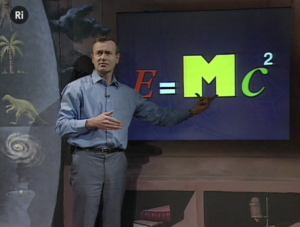 In 2016 the Royal Institution commissioned a book pulling together a ‘baker’s dozen’ of the finest Christmas Lectures since 1885. One of the lectures chosen was the 1993 lecture by Professor Frank Close entitled ‘The Cosmic Onion‘.
In 2016 the Royal Institution commissioned a book pulling together a ‘baker’s dozen’ of the finest Christmas Lectures since 1885. One of the lectures chosen was the 1993 lecture by Professor Frank Close entitled ‘The Cosmic Onion‘.
Frank’s journey into science communication started through writing for Nature and then New Scientist. A distinguished particle physicist, Frank’s CV takes in many of the world’s most important places for breakthroughs in physics: Stanford, CERN, Daresbury and Rutherford Appleton Lab. He is now Emeritus Professor at the University of Oxford.
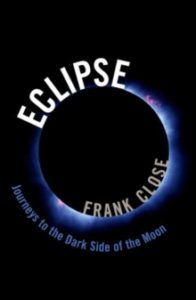 He is also one of the world’s foremost experts on eclipses, having travelled all over the world to witness them. Frank also helped found the annual ATOM Festival or Science and Technology in Abingdon.
He is also one of the world’s foremost experts on eclipses, having travelled all over the world to witness them. Frank also helped found the annual ATOM Festival or Science and Technology in Abingdon.
But it is as a writer and populiser of scientific ideas that Frank is best known. He has written critically acclaimed books on the neutrino, antimatter, the science of symmetry (‘Lucifer’s Legacy‘) and the story behind the hunt for the Higgs Bosun (‘The Infinity Puzzle‘).
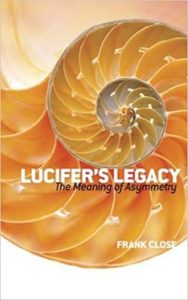
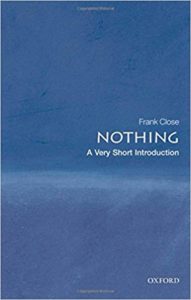
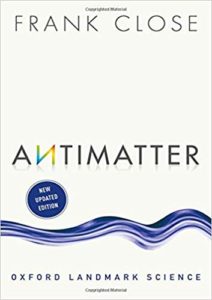
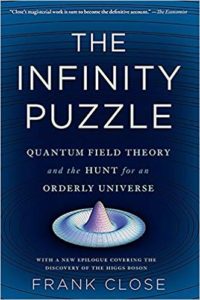
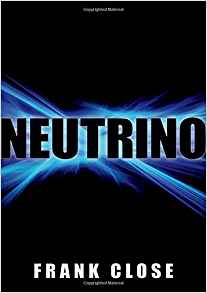
In recent years, Frank has written about the stories behind the atomic spies, and his latest book ‘Trinity: The Treachery and Pursuit of the Most Dangerous Spy in History‘ (published in 2019) details the gripping story of Klaus Fuchs, who worked on both the Manhattan Project and at the UK’s nuclear laboratory at Harwell, and who co-ordinated the leaking of critical information that allowed the Soviet Union to develop their own atomic bomb.
Frank was vice-president of the British Association for the Advancement of Science, has received the Royal Society’s Michael Faraday Prize and the Institute of Physics Kelvin Medal for outstanding contributions to science communication. Awarded an OBE in 2000 for services to science, in 2019 Frank was interviewed by Jim Al-Khalili on the BBC’s ‘The Life Scientific‘.
Such is the sheer range and history of Frank’s experiences, the episode is split into two parts.
Part 1 focuses on Science Communication: how he (accidentally) became a science writer in the first place, the story behind that groundbreaking 1993 Christmas Lecture, and finally his experiences as head of communications at CERN when he realised that effectively explaining big science to a wider world was critical in getting popular and political support for all science.
Along the way we explore how close the UK came to pulling out of CERN in the 1980s, how to create an explosion in your bare hands, and the secret to great research: it’s all about asking the right questions apparently…
Part 2 digs further into Frank’s life as a writer – both as the author of bestselling science books such as ‘Neutrino’ and ‘The Infinity Puzzle’ to his latest books that examine the history of the Atomic Spies.
We learn about how Frank got into writing (accidentally, it turns out) and the individuals in publishing who guided him along the way. We discuss the background and content of his latest book “Trinity”, about the extraordinary life – and the secrets that still persist – about nuclear spy Klaus Fuchs.
Trinity was published in 2019, but *this* interview was recorded in 2018, which explains some anomalies in our timing references. But then, perhaps that’s appropriate for someone who has spent his life studying the often weird world of space and time in such fundamental detail…
(A reminder that you can listen now on SoundCloud, iTunes and Stitcher. And for a comprehensive set of show notes, including links, analysis and organisation contact, consider becoming a supporter through Patreon – or email us for more details).
P.S. You can watch all five episodes of the Christmas Lectures – as broadcast by the BBC – on the Royal Institution website here. Accessible to anyone – young or old – it’s remains a thoroughly entertaining journey through physics, the universe and, well, everything.
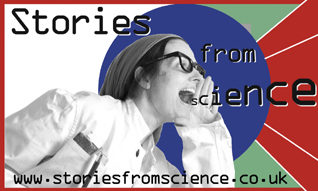
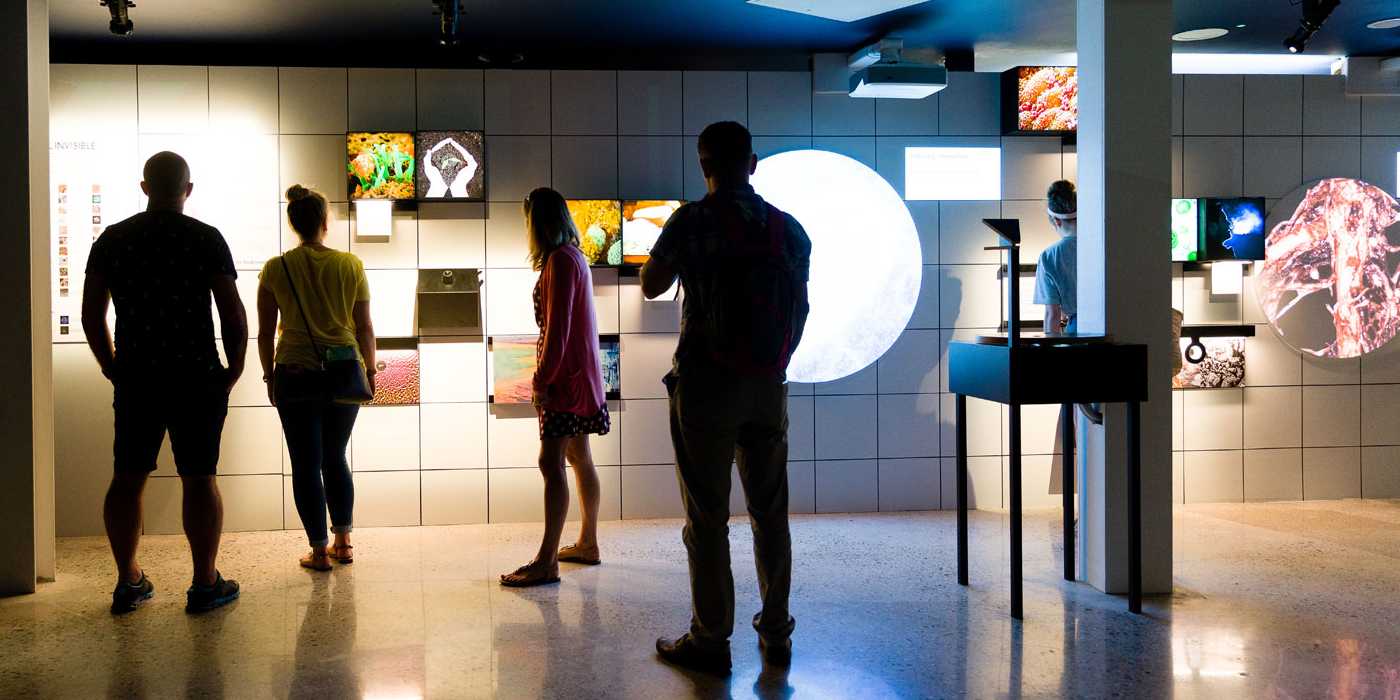
 At a
At a 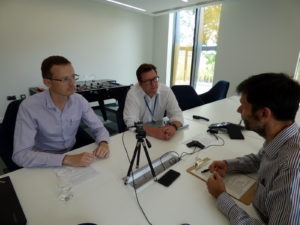 We sat down with Chief Operating Officer Philip Briscoe and Chief Technical Officer Andrew Carrel to better understand what Rezatec does and why Earth Observation science is becoming so critical: from improving crop yields to making our cities more sustainable.
We sat down with Chief Operating Officer Philip Briscoe and Chief Technical Officer Andrew Carrel to better understand what Rezatec does and why Earth Observation science is becoming so critical: from improving crop yields to making our cities more sustainable.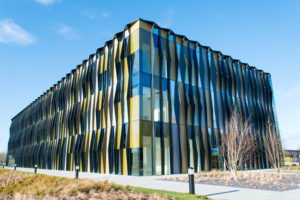 It’s genuinely exciting and Rezatec are growing fast, winning awards, and recently moved into a spanking new HQ building on the Harwell Campus (‘Quad One’). This Autumn, Rezatec joined forces with the European Space Agency (ESA) in contributing to the
It’s genuinely exciting and Rezatec are growing fast, winning awards, and recently moved into a spanking new HQ building on the Harwell Campus (‘Quad One’). This Autumn, Rezatec joined forces with the European Space Agency (ESA) in contributing to the 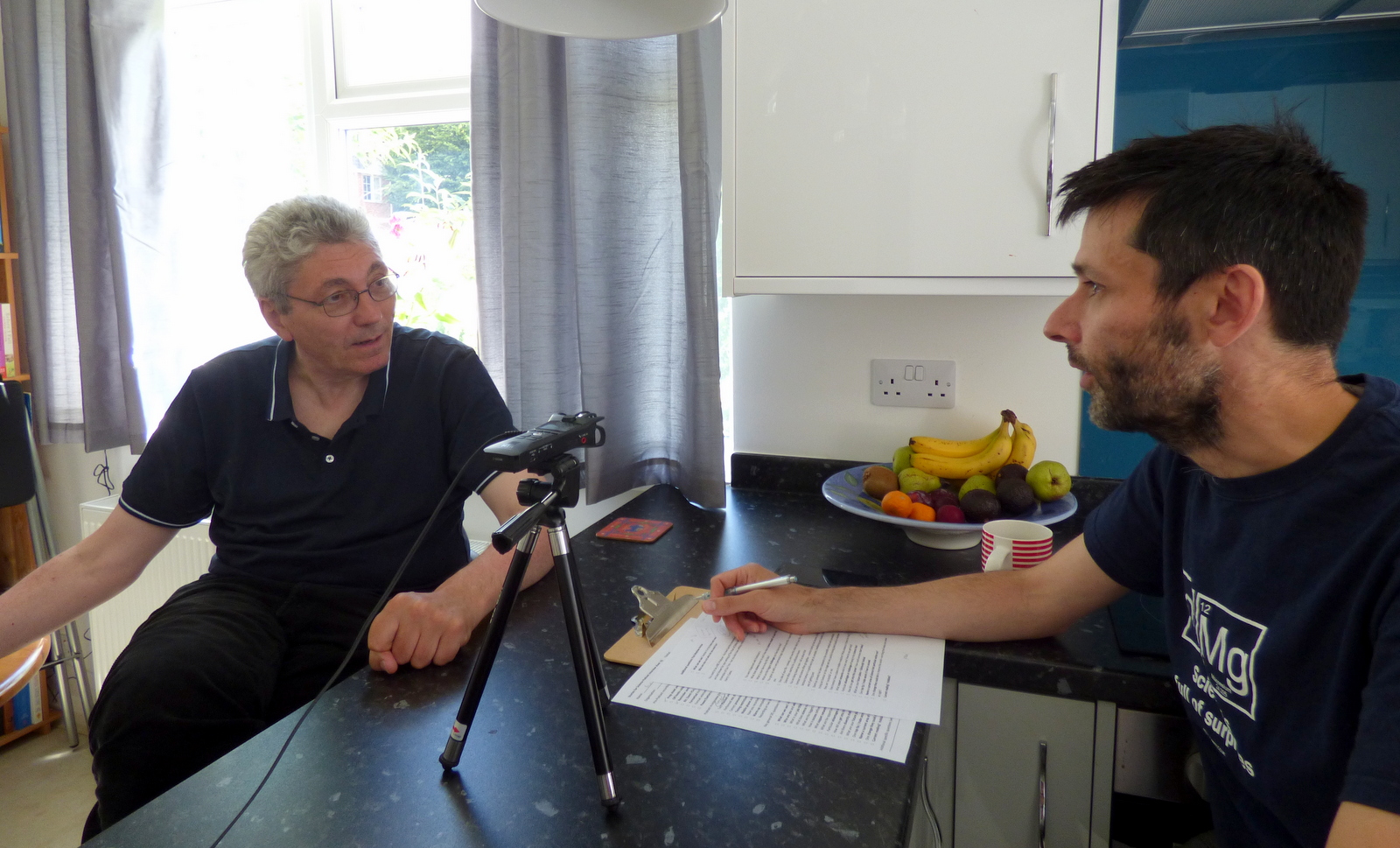
 Paul Mayhew-Archer is one of our best-loved comedy writers, with credits include The Vicar of Dibley (which he co-wrote with Richard Curtis), but also Old Harry’s Game (with Andy Hamilton), Miranda and the BBC adaptation of Esio Trot. He was also a BBC producer, most famously for the radio show ‘I’m Sorry I Haven’t A Clue’.
Paul Mayhew-Archer is one of our best-loved comedy writers, with credits include The Vicar of Dibley (which he co-wrote with Richard Curtis), but also Old Harry’s Game (with Andy Hamilton), Miranda and the BBC adaptation of Esio Trot. He was also a BBC producer, most famously for the radio show ‘I’m Sorry I Haven’t A Clue’. So this is a science podcast with a difference. Yes, we touch on the science of Parkinson’s and its treatment, the experiences of being treated by medical science, and even the science of what laughter does to us both physiologically and socially.
So this is a science podcast with a difference. Yes, we touch on the science of Parkinson’s and its treatment, the experiences of being treated by medical science, and even the science of what laughter does to us both physiologically and socially.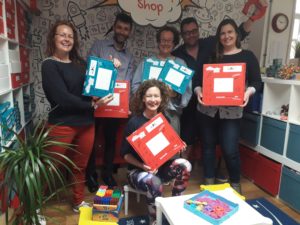 There are many people in life who are passionate about STEM, education and science, and who work hard to connect with children, to unlock a lifelong love of science. But outside mainstream education, it would be difficult to find anyone who has so consistently and brilliantly applied herself in the service of science and education as Renee Watson.
There are many people in life who are passionate about STEM, education and science, and who work hard to connect with children, to unlock a lifelong love of science. But outside mainstream education, it would be difficult to find anyone who has so consistently and brilliantly applied herself in the service of science and education as Renee Watson.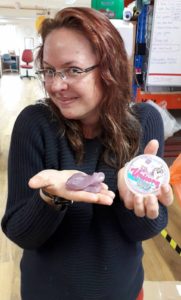 Growing up in rural Australia, with no obvious mentors or scientists to ignite her own spark (save one, which we learn about in this episode of Stories from Science) she is almost uniquely qualified to identify and connect to her diamonds in the rough. These are the smart, motivated, curious children who fall through the cracks of mainstream education and yet are exactly the kinds of young people who will see things differently, and provide the new ideas and creativity in science that will solve problems and move society forward.
Growing up in rural Australia, with no obvious mentors or scientists to ignite her own spark (save one, which we learn about in this episode of Stories from Science) she is almost uniquely qualified to identify and connect to her diamonds in the rough. These are the smart, motivated, curious children who fall through the cracks of mainstream education and yet are exactly the kinds of young people who will see things differently, and provide the new ideas and creativity in science that will solve problems and move society forward.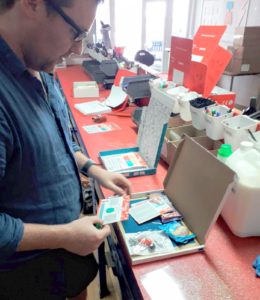 The Curiosity Box allows children and their families to do science and experiment in their own homes through a subscription service which sees a regular box crammed full of science fizz through the letterbox (metaphorically), with the aim to make science as common a topic to discuss around the kitchen table as politics and TV shows.
The Curiosity Box allows children and their families to do science and experiment in their own homes through a subscription service which sees a regular box crammed full of science fizz through the letterbox (metaphorically), with the aim to make science as common a topic to discuss around the kitchen table as politics and TV shows.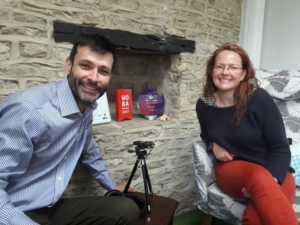 It’s difficult not to get swept up in this enthusiasm for revolution. In this inspiring hour-long interview, we discover why science capital is like carrying a suitcase, we learn the constituent parts of Unicorn Poo, and go toe-to-toe with STEM Barbie.
It’s difficult not to get swept up in this enthusiasm for revolution. In this inspiring hour-long interview, we discover why science capital is like carrying a suitcase, we learn the constituent parts of Unicorn Poo, and go toe-to-toe with STEM Barbie.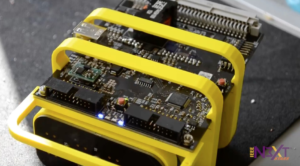 What could be more familiar than the humble electric battery? They’ve been around for years, factories knock them out regular as clockwork and we’re pretty familiar with them. They are in our phones, our remote controls, our game controllers and our cars.
What could be more familiar than the humble electric battery? They’ve been around for years, factories knock them out regular as clockwork and we’re pretty familiar with them. They are in our phones, our remote controls, our game controllers and our cars.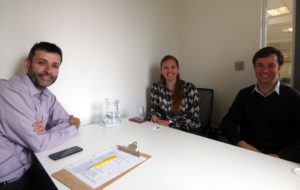 In a constantly surprisingly – and genuinely inspirational – hour-long podcast, we talked to Carolyn Hicks and Christoph Birkl of Oxford University spin-out Brill Power. Emerging from Oxford University’s Department of Engineering Science, Brill is looking to bring about a revolution in battery control systems to extend the lifespan of multi-cell batteries.
In a constantly surprisingly – and genuinely inspirational – hour-long podcast, we talked to Carolyn Hicks and Christoph Birkl of Oxford University spin-out Brill Power. Emerging from Oxford University’s Department of Engineering Science, Brill is looking to bring about a revolution in battery control systems to extend the lifespan of multi-cell batteries.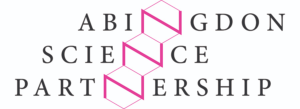
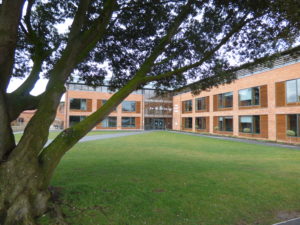
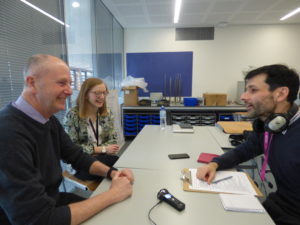
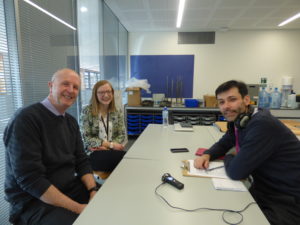
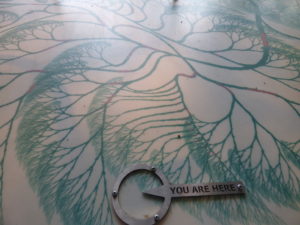
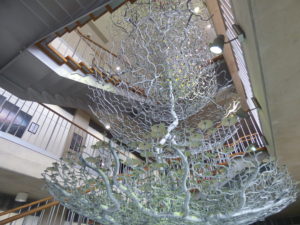
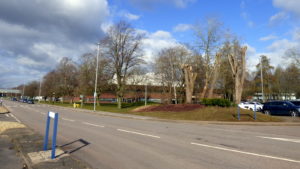
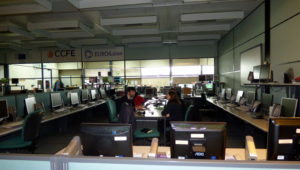 We conducted the interview in the Control Room – and felt incredibly privileged to do so.
We conducted the interview in the Control Room – and felt incredibly privileged to do so.